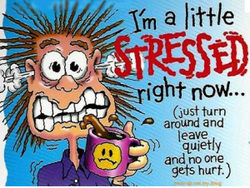
PTSD
Dissociative Disorder
ADD/ADHD
Mood Disorder (Bipolar and Major Depressive Disorder)
Psychosis (paranoia, hallucinations)
Somatic Disorder (physical complaints).
Anxiety Disorder
Personality Disorders
Addictive Disorders
Fibromyalgia
Chronic Fatigue Syndrome
Asthma and Allergies
Digestive Disorders
Most HSPs don’t know the reason for their sensitivity and the challenges can outweigh your natural gifts and talents, leading an imbalanced perception of yourself as flawed or defective. Low self esteem and relationship problems can plague you. Criticism from others tends to make this worse with advice like “you just have to get over it” or “toughen up” or “what is wrong with you”. Once you understand yourself better, you can experience your talents and gifts that include:
Sharp Intellect
High Creativity
Deep Compassion
Authenticity
Spirituality
Strong Intuition
To get a handle on the challenges of your sensitivity you must learn to soothe and protect your nervous system. Important skills for to develop include:
1 - Setting emotional boundaries: You can easily pick up on the feelings of others and can become confused about whether your feelings are your own. Think of yourself as a psychic sponge, soaking up the mental and emotional energy of those around you. Use your creativity to visualize a protective shield around you that can filter out some of the stimulus around you.
2- Relationship skills (this can be an entire post): Knowing how and when to say “no”. This is tough for you because you don’t want to hurt anyone’s feelings. Yet when you take on more than you can handle, you can build resentment that often leads to pulling away from others, so that you find yourself bouncing from one extreme to another. Being assertive can help you maintain healthy relationships.
Just as important as saying “no” is knowing how and when to ask for help. You often imagine being able to get more accomplished than your physical body is capable of. Your nervous system will eventually win this battle and get your attention. Asking for help from others easier when you realize you would do or have already done the same for them.
Finally, choose your relationships wisely. You often get into unhealthy codependent relationship patterns due to your tendency to believe in the potential of others while ignoring their issues that they may never do anything about. Balance an idealistic outlook with a realistic perspective.
3- Self-soothing: Think of this as moisturizer for the nerves. The nerves need some calming on a regular basis. Appeal to the five senses through aromatherapy, massage, yoga, warm herbal tea, soothing sounds, warm baths, art and nature. Investing the time for this will pay off by helping you accomplish things more efficiently.
4- Ground yourself: It’s much more likely that you’re in your head too much rather than being “out of your mind”. The imagination and analyzing has its limits and an HSP can frequently find themselves “going down the rabbit hole”...and one thought leads to another, then another, and another, etc. I tell people to throw out a “spider web”...like Spider Man and pull yourself out of your head. You must occupy your body and latch onto something in the physical world..something in your five senses. Name 3 things you can see and hear. Feel your feet on the ground or the chair you’re sitting on. Get moving with exercise.
5 - Mindfulness: Watching your own mind work. This is when you take a mental “step back” and just observe your own thinking and feelings without getting sucked into them. Imagine they are just passing by or through you. You’re not avoiding them or getting caught up in analyzing them. Let go of “why”...and stay with “it is what it is”. Understand that thoughts are thoughts and feelings are feelings. They serve a purpose, but they don’t always hold the truth. They contain information and energy.
6 - Support: It’s important to have a positive, non-judgmental support system that you can turn to so you don’t feel so isolated. Connection to others is a basic human need, whether it’s a friend, family member, group, therapist, clergy, etc. Find a balance of interaction with others and time to yourself, based on your own personal needs.
7 - Organization: Clear out clutter as much as possible and use a planner of some sort to organize your space and time. This can reduce the amount of stimulus that overwhelms you. Getting your plans, ideas, and tasks on paper (or in your smartphone) helps you clear your mind and see things more clearly. Checking things off feels good.
If you or someone you know is an HSP, please share your thoughts, questions, or suggestions. And, watch for the next post “You’re so Insensitive”...for those on the other end of the spectrum...you know who you are.
Take care,
Shannon

 RSS Feed
RSS Feed